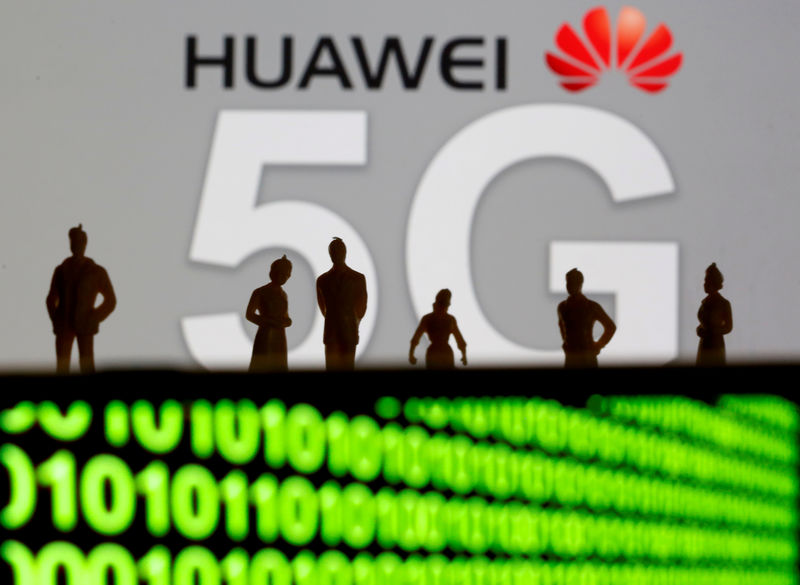(Reuters) - Britain's plan to allow Chinese telecom giant Huawei Technologies a restricted role in its next generation mobile networks is part of a heated international debate over the security risks so-called 5G technology presents.
Britain plans to allow Huawei access to non-core parts of fifth-generation, or 5G, networks on a restricted basis and block it from all so-called core parts, sources told Reuters.
The core is where the network's most critical controls are located and the most sensitive information is stored, while the periphery includes masts, antennas and other passive equipment.
The move comes despite calls from Britain's close ally, the United States, for countries to ban Huawei altogether from 5G networks because of concerns that its equipment could be used by Beijing for spying or sabotage.
5G promises super-fast connections which tech evangelists say will transform the way we live our lives, enabling everything from self-driving cars to remote surgery and automated manufacturing.
But that dramatically increases the security risk, U.S. officials say, because of the increasingly central role that telecommunications will play in our lives and the expected dramatic increase in connected devices in the network.
CRITICAL INFRASTRUCTURE
As 5G becomes embedded in everything from hospitals to transport systems and power plants it will rapidly become a part of each country's critical national infrastructure.
This makes the consequences of the networks failing or being deliberately sabotaged in a cyber attack significantly more serious.
"5G will really start touching all parts of our lives because it will be the underlying infrastructure for so much of the critical services that are provided to the public," said Robert Strayer, the U.S. State Department's lead cyber policy diplomat.
"So if a 5G network fails, there would be significant ramifications for all parts of society," Strayer said.
MORE CONNECTIONS
With much faster data speeds, experts predict there will be billions of connected devices.
These will include traditional mobile and broadband connections, but also internet-enabled devices from dishwashers through to advanced medical equipment. Industry association GSMA forecasts the number of internet-enabled devices will triple to 25 billion by 2025.
The larger the network, the more opportunities there are for hackers to attack, meaning there is an increasingly complex system with more parts that need protecting.
DISTRIBUTED SYSTEM
One of the biggest changes between 4G and 5G is the ability to take the advanced computing power usually kept in the protected "core" of a network and distribute it to other parts of the system. This will provide more reliable high-speed connections.
But it also means engineers will no longer be able to clearly ring-fence the most sensitive parts of the system, U.S. officials say.
Some British lawmakers agree.
"Allowing Huawei into the UK's 5G infrastructure would cause allies to doubt our ability to keep data secure and erode the trust essential to Five Eyes cooperation," said Tom Tugendhat, the chairman of Britain's Foreign Affairs Committee.
The Five Eyes alliance is an intelligence sharing group that comprises the United States, Canada, Britain, Australia and New Zealand.
"The definition of core and non-core is a very difficult one with 5G," he added.
